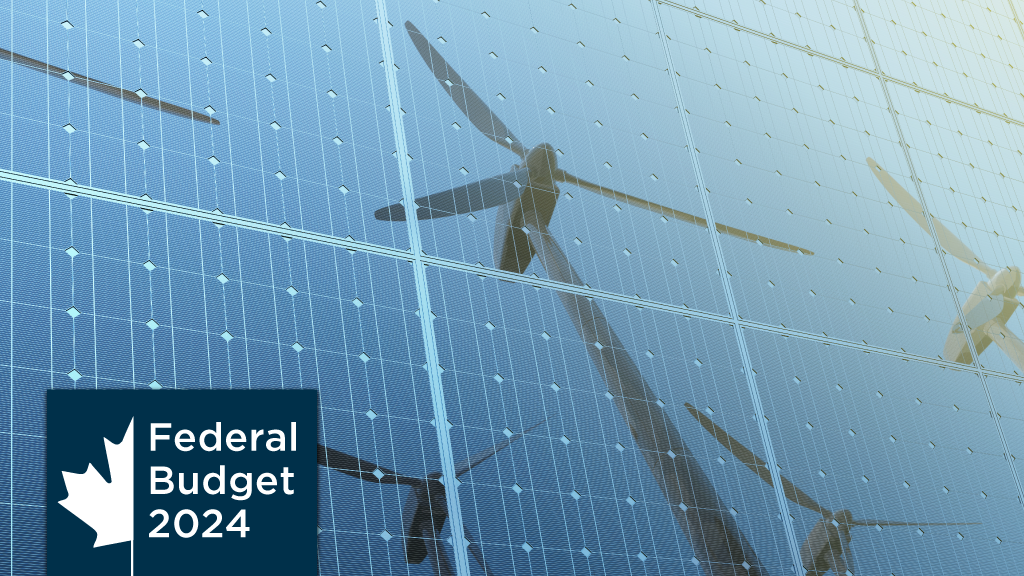


The 2024 federal budget is re-emphasizing the government’s commitment to a global clean economy and Canada’s role in getting to net-zero.
Finance Minister and Deputy Prime Minister Chrystia Freeland presented the budget in the House of Commons on April 16. While much of her focus was on measures to combat an ongoing housing crisis, the budget also highlighted a series of ongoing tax credits to grow the clean tech sector and it also introduced a new electric vehicle (EV) supply chain investment tax credit.
The new 10 per cent EV supply chain investment tax credit applies to the cost of buildings used in key segments of the electric vehicle supply chain. It is meant for businesses that invest in Canada across electric vehicle assembly, electric vehicle battery production and cathode active material production supply chain segments, the budget stated.
The EV supply chain tax credit is expected to cost $80 million over five years, starting in 2024-25 and an additional $1.02 billion from 2029-30 to 2034-35, according to the budget. It would apply to property that is acquired and becomes available for use on or after Jan. 1, 2024. The credit would be reduced to five per cent for 2033 and 2034 and would no longer be in effect after 2034.
Design and implementation of the EV Supply Chain investment tax credit will be provided in the 2024 fall economic statement.
The Liberal government introduced Bill C-59 to deliver both the Carbon Capture, Utilization and Storage investment tax credit and the Clean Technology investment tax credit. The budget stated it will soon introduce legislation for a Clean Hydrogen investment tax credit and a Clean Technology Manufacturing investment tax credit.
Design and implementation details of the Clean Electricity investment tax credit include a 15 per cent refundable tax credit rate for eligible investments in new equipment or refurbishments related to low-emitting electricity generation systems using energy from wind, solar, water, geothermal, waste biomass, nuclear, or natural gas with carbon capture and storage. It also applied to stationary electricity storage systems that do not use fossil fuels in operation, such as batteries and pumped hydroelectric storage. It would also be applicable to transmission of electricity between provinces and territories.
Provincial and territorial Crown corporations can also access the Clean Electricity credit if they publicly commit to working towards a net-zero electricity grid by 2035. A key element, however, is passing through the value of the Clean Electricity investment tax credit to electricity ratepayers in their province or territory to reduce ratepayers’ bills as well as publicly reporting, on an annual basis, on how the tax credit has improved ratepayers’ bills.
Budget 2024 proposes to provide the Canada Revenue Agency up to $90.9 million over 11 years, starting in 2024-25, to administer the new major economic investment tax credits and to provide Natural Resources Canada $7.4 million over five years, starting in 2024-25, to provide expert technical advice on engineering and scientific matters related to the major economic investment tax credits and to support the administration of certain investment tax credits with the Canada Revenue Agency.
Approximately $21.4 million would be provided to the Department of Finance Canada over 11 years, starting in 2024-25, to complete the implementation, including legislation, of the major economic investment tax credits, ensure ongoing evaluation and response to emerging issues, and propose appropriate legislative amendments to the Income Tax Act and Income Tax Regulations.